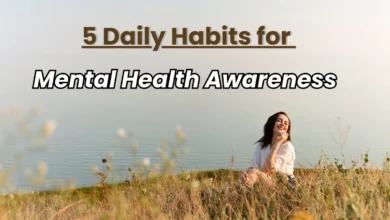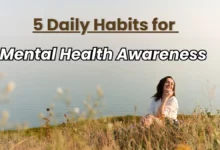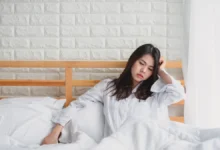Art Therapy for Mental Health: Heal Through Creative Expression

Introduction: What If Healing Isn’t Just in a Pill?
Art therapy for mental health isn’t just some feel-good Pinterest trend—it’s a science-backed, soul-soothing, and highly effective way to deal with emotional challenges. Whether you’re struggling with anxiety, depression, trauma, or even just everyday stress, in fact, creative expression can be a powerful form of healing.
More and more people are searching for alternative ways to heal emotionally without medication—and this is where healing through creative expression shines. You don’t need to be Picasso. You just need to show up with your emotions and a willingness to explore them with color, shape, or motion.
What Is Art Therapy—and How Does It Work?
Art therapy combines psychological techniques with creative practices like painting, drawing, sculpting, or collage. It’s guided by a licensed therapist who helps individuals use creative expression as a medium for processing thoughts and feelings.
Unlike talk therapy, art therapy lets you heal through creative expression—bypassing overthinking and tapping into your subconscious. People who struggle to verbalize trauma or complex emotions often find this approach more freeing.
Top Benefits of Art Therapy for Mental Health
Let’s break it down—what exactly does art therapy for mental health offer that other treatments might not?
1. Reduce Anxiety and Stress with Creative Expression
Creating art activates the parasympathetic nervous system, lowering stress hormones like cortisol. In fact, studies have shown that even 45 minutes of artistic activity can significantly reduce stress levels. Scribble your way to serenity, anyone?
2. Support Depression Recovery through Art
Art gives people with depression a sense of control, purpose, and accomplishment. It provides an outlet to externalize negative emotions in a safe, non-verbal way. Healing through creative expression helps externalize what can’t always be spoken.
“Art enables us to find ourselves and lose ourselves at the same time.” — Thomas Merton
3. Build Resilience and Emotional Strength with Art Therapy
By engaging in art, individuals develop emotional awareness and coping mechanisms. Art helps people explore painful emotions, understand them, and gradually shift their perspective—essentially, it trains the brain to process emotions more effectively.
4. Heal Through Creative Expression and Mindfulness
Art-making often leads to a “flow state”—a kind of focused calm where time feels suspended. This meditative quality enhances mindfulness, which is a cornerstone of emotional well-being.
Creative Expression as a Tool for Self-Discovery
One of the most empowering aspects of art therapy for mental health is that it leads to self-awareness. When you draw, paint, or mold, you’re actually engaging in a visual dialogue with yourself.

You might uncover hidden fears, unresolved grief, or even untapped strengths. The point isn’t to make “good” art—it’s to heal through creative expression and allow your emotions space to exist.
Creative activities like:
- Journaling with sketches
- Creating vision boards
- Sculpting your stress
Who Can Benefit from Art Therapy?
You might be wondering, “Is this just for people who’ve been through major trauma?” The answer is no. Art therapy can benefit anyone dealing with:
- Generalized anxiety
- Depression
- PTSD or trauma
- Grief or loss
- Eating disorders
- Relationship stress
- Burnout
- Low self-esteem
Even if you’re simply feeling stuck or overwhelmed, in fact, this form of therapy can give you a non-verbal pathway to mental healing.
Common Misconceptions About Art Therapy for Mental Health
Let’s address the paint-covered elephant in the room:
“But I’m not artistic…”
Totally fine. The goal isn’t to create a masterpiece; it’s to express your emotions without judgment. Therapists don’t grade your drawings.
“Isn’t this just for kids?”
Although it’s popular among children, adults and older people also gain immense benefits. Moreover, art therapy for mental health is now widely used in corporate wellness, prisons, and hospitals.
“I’d rather talk it out.”
That works too! Many people combine talk therapy with healing through creative expression for a more holistic approach.
How to Get Started with Art Therapy
If you’re curious to try it out, then here are a few options to get you started:
1. Find a Licensed Art Therapist
Search for certified practitioners in your area or online. A guided experience can help you make the most of the process.
2. Try Guided Art Therapy Apps
There are some great mobile apps and platforms that provide therapeutic creative prompts.

3. DIY Creative Therapy
Even without a therapist, engaging in reflective, mindful art can be healing. Keep an emotional sketchbook or create mood mandalas—anything that helps you tune in.
Why Art Therapy for Mental Health Works: A Brain-Based Perspective
Research shows that art-making activates reward pathways in the brain. Dopamine—often dubbed the “feel-good” chemical—is released during the creative process. This helps regulate mood, improve focus, and boost motivation.
Creative activities activate both hemispheres of the brain, encouraging balanced thinking—especially helpful for those who overthink, shut down emotionally, or feel mentally scattered.
Final Thoughts: Let Art Lead the Way
In a world full of noise and emotional overwhelm, art therapy for mental health offers a safe, creative outlet to simply be—with no pressure, no perfection, just presence.
So the next time your mind feels cluttered or your heart feels heavy, don’t just reach for words—reach for color, texture, and shape. You’ll be surprised how deeply you can heal through creative expression.










I was in a loving relationship with my husband for 13 years and we have three beautiful kids together. Things started changing when he got a new job that paid more. I started getting suspicious but could never confirm anything until a colleague of mine introduced me to a hacker. This hacker helped me spy on my husband without any physical access to his phone. I was able to receive his phone text messages and messages from all his social media accounts in real time. Additionally, he can help with improving credit card debt. You can contact him at +1 (564) 224-5803 . Just tell him that I referred you and he will be willing to help. You can also reach out to him if you’re unable to withdraw funds from any online trading platform like expert-option, cal financial, Analyst, coinspot, Ctxprime, and many more.
665betlogin? Yeah, I’ve used it a few times. It’s alright, does what it says on the tin. Not my favorite, but it’s reliable enough. Give it a go through this link: 665betlogin.
I love your blog.. very nice colors & theme. Did you make this website yourself or did you hire someone to do it for you? Plz reply as I’m looking to design my own blog and would like to know where u got this from. appreciate it